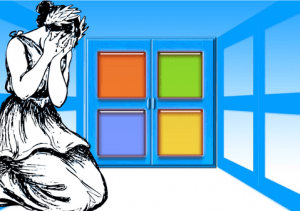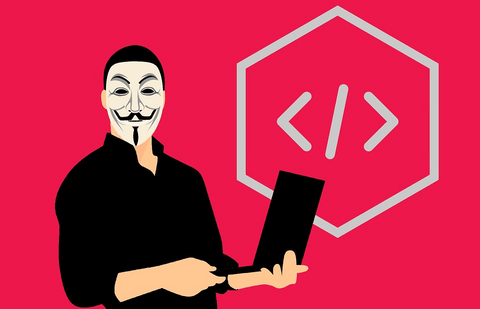Why Linux is more secure than Windows
Decentralized open source initiatives then progress through a merit based system, in which changes are adopted as they are shown to be needed.

Open Source
First, Linux is open source, meaning anyone can view the code. Because of this, Linux does not have malicious tracking or anything that works against you.
Testing Flaws
Because the code is readily available, Linux gives huge numbers of participants the ability to test security flaws. The operating system improves through the contributions of decentralized individuals looking over the code.
Merit Based
Decentralized open source initiatives then progress through a merit based system, in which changes are adopted as they are shown to be needed. And if you really want to learn about Linux, then subscribe for free to our new content by email, by Session messenger, RSS feed, or Nostr.
Organic Feedback Loop
Management Dictates
Windows has less of an organic feedback loop. Linux is in sharp contrast to Microsoft Windows, for which management dictates what changes will take place. With Windows, only those within the company or those that the company hired can view the source code for security flaws. So by trusting Windows, you are essentially betting that these Microsoft employees are better and smarter than the entire rest of the IT community.

Millions of Eyes
On the other hand with an open source project like Linux, it is a constant feedback loop of the community finding flaws, and then the development teams responding. Linux has good code because it’s stood the test of time of thousands to millions of eyes looking for security flaws in it that were then corrected.
Security
Unknown Unknowns
It’s unknown what security flaws could be found from looking at Microsoft’s code, but there certainly are many instances of viruses and data breaches in the real world.
Viruses
Linux is more resilient to computer viruses for a number of reasons. In fact, Linux is so secure that you don’t even need anti-virus software. (As an aside, anti-virus software on Windows is another way that you are being spied on. Every file it scans is reported back to the anti-virus company.)
Some say Windows has more viruses because it’s more widely used. This propaganda is only applicable to home users because Linux is actually a LARGER share of the enterprise cloud market. And they don’t get viruses because it’s extremely difficult to compromise.
Windows has a flawed design

Microsoft Windows is vulnerable to viruses by its flawed design of allowing programs either all or nothing access. When you download and run a Windows .exe file, you have to trust the creator because it can do anything once it is run.
Sandbox
In sharp contrast, when you get software from outside the package manager’s approved software, it’s usually an AppImage or Flatpak which are automatically sandboxed only have permissions related to that software itself and not the entire system. However, these sandboxes are relatively weak and not as strong as a full-blown virtual machine for isolation, but it’s still better than Microsoft Windows or nothing.

AppImage & Flatpak
This AppImage and Flatpak sandbox system helps provide some security but remember it is a weak sandbox so any untrusted software should be run in a full virtual machine. The goal of any sandbox is to stop malicious software from spreading across your entire computer.
Linux software is better vetted
Package Manager
Another way that Linux differs from Microsoft Windows is in how you get applications. Every type of Linux (which is called a distribution) has a centralized free app store. The nerdy technical word for this is “package manager”, but it is very similar to an app store on phones.
Like App Stores
You can easily and effortless install software from your “app store” package manager. This software installation method will dramatically increase your security, since all software is being vetted by the operating system’s creators as being safe. The app store (aka package managers) have most of the basic programs that you’d need when you get started, such as an office suite, picture and video editor, and a web browser.
But then is it decentralized?
Who Picks Apps?
You might be thinking “But Linux is not really decentralized if the operating system’s creators get to pick which apps are in it’s app store” (aka package manager). There’s a few replies to this.
Distros Compete
The first is that different versions of Linux (called distributions) compete with each other. Anyone could make their own version of Linux, so if you don’t like the contents of one app store, you can go to another one. This competition forces Linux developers to want to have desired software and not to censor.
Direct Download
The second reply is that just like Windows, you can download Linux software directly from the website of the creators, if you choose to do so. And if you do this without the app store (aka package manager), then the program itself is sandboxed like we outlined earlier in this article to only be able to modify files related to its own software.
Linux Software Updates Easily
Stays Safe
Not only is Linux software more safe when you get it, but it stays safe over time. With flawed systems like Windows, the user has to update each piece of software individually over time. Since this is extremely burdensome, most users don’t do it, and then they are vulnerable to new security bugs.
Update all at once
On the other hand, Linux lets you update all your software at once in a single typed command. This easy to apply update ensures you will effortless be able to resist the latest hacking bugs across the whole system effortlessly.
Conclusion
Join Community
Get our new content by subscribing for free by email, by Session messenger, RSS feed, or Nostr. It’s easy to see why Linux is much more secure than Microsoft Windows because of pre-vetted software in an app store (package manager), sandboxed software, and an open source feedback loop. But then why is Microsoft Windows so popular?
It’s Easy
Many people mistakenly believe that Linux will not have the software they need or that Linux requires a massive amount of time to learn compared with Windows. Both of these assumptions are largely propaganda due to a lack of education and a biased media.
We will examine this pro-Microsoft propaganda further in the next article on software availability.
If you really want to learn and take your privacy to the next level, subscribe to our new content via: Nostr, Bastyon, Session, RSS, Ethereum Push
Related Posts

Be honest, you're using Big Tech because..
You think it's hard to switch. But you need to know this..
[SP]
Sep 7, 2024

4 Open Source Software/Apps for your Liberty & Pleasure!
Improve your life with these
[SP]
May 17, 2024

Ubuntu Bitcoin Snap Hack, yet CEO is still clueless
A scammer got a fake version of Exodus wallet in Canonical’s Ubuntu snap store.
[SP]
Feb 25, 2024

Pro-Con of Linux Distributions
There are some security advantages to certain Linux distributions over others that of course have to be balanced with convenience for your specific situation.
[SP]
Nov 20, 2023